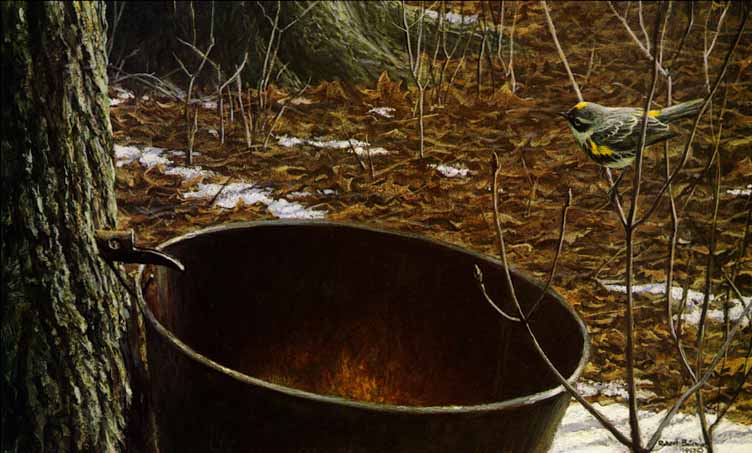Sap Bucket – Myrtle Warbler
A particular pleasure of early spring was a visit to a sugar bush, a maple woodlot being tapped to make maple syrup. The sap begins to run when temperatures exceed freezing during the day then drop below freezing at night. In fact, this alternation between freeze and thaw is crucial to a good flow. During my childhood, sap was still collected by traditional methods, in much the same way that native people had taught the early pioneers to harvest it. When the sap buckets were full, they were emptied into a gathering tank on a horse-drawn sled for transport to the sugarhouse, where the sap was evaporated in big pans over a constantly stoked wood fire. When I recall maple-sugaring time, I hear the snorting of horses and feel the crunch of last year’s leaves beneath the granular late-spring snow. The warm spring sun shines through a barren tracery of branches, casting filigree shadow patterns on the ground. I know that in a few weeks the woods will come alive with wildflowers, but the only signs of life now are the running sap and perhaps an early returning migrant like a yellow-rumped warbler. Inside the sugar house arid woodsmoke mixes with the sweet smell of maple vapors, reputed to be a sure-fire cure for a spring cold. Such memories evoke for me a simpler time, when communal labor was a regular part of most people’s lives. - Robert Bateman
Sap Bucket – Myrtle Warbler
Robert Bateman
(-57%)
This Piece has been Signed by Robert Bateman

